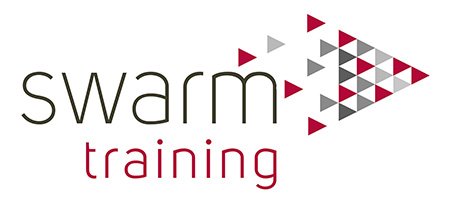Going for Gold! Aiming High to Achieve your Goals
With the 2024 Olympic Games upon us, it's a great opportunity to take inspiration from those hard-working athletes who are on the cusp of achieving their lifelong goals and start aiming high!
As Team GB head to Paris, we know that the competitors have been working tirelessly, day in day out, to move one step closer to fulfilling their dreams. Medals, and world records don’t just happen by chance. They are the accumulation of lots of micro steps towards the goal, and years of commitment to the plan.
You may have set yourself a goal of gaining a distinction in your EPA, or passing by a certain deadline.
Perhaps you are focussed on a personal goal, outside of work such as breaking your Park Run record or reading so many books a year?
Having a clearly defined goal and a plan of action is necessary if you hope to strike gold.
According to a survey by Forbes, only one in six people (approximately 17%) stick to their New Year resolutions for four to six months. Another 9% persist with their goals for six to nine months, and 6% for nine to 12 months.
Goal Setting:
How can you stay on track?
Some people rely on technology to monitor progress (Whoop, FitBit, or even a simple spreadsheet). Others use external accountability by buddying up with a partner, or declaring their goal to family and friends.
Visual representation is a powerful way to remind us of our dreams and the reasons why we are making sacrifices to help achieve them.
For instance, if you’re hankering after a holiday in a far away destination, create a mood board of images of your dream trip and that may help you to stay on track with your saving plan.
One method our learners may be familiar with is setting a SMART Goal. Using the SMART goal framework (Specific, Measurable, Attainable, Relevant and Timely) can be adapted to your personal goals, as well as your work ones.
Being SPECIFIC about what you want to achieve will give you clear guidance. For example, instead of saying you want to get fit, break the task down and give a clear description e.g. go to the gym 3 times a week for 30 mins.
Make it MEASURABLE.
Rather that resolve to eating healthily, perhaps you could create a target, like eat 30 different plants a week. The key to stay on target is to continually review your progress. Are you moving in the right direction?
Is your goal ATTAINABLE? Is it realistic for you to achieve the desired outcome. If the goal is too much of a leap, you’re unlikely to stick to it.
Make your goal RELEVANT. Is the change you want going to improve your well-being, your career or bring satisfaction to your life in the long term?
The T stands for TIMELY. Setting a time-frame will ensure you stay on track and make steady progress towards the target. A goal without a deadline is rarely achieved.
Achieving your dream is not just about focussing on what you need to do, but also on what you should no longer be doing - think about what is holding you back currently.
Are you scrolling social media when you could be training for the Park Run?
Are you buying a coffee from Costa each morning when you could be banking that towards a holiday?
Are you staying up too late so you are too tired to work effectively in the morning?
Just as our Olympic hopefuls have, ensure you scrutinize each of the micro steps that will contribute to the end result.
Have you heard of the term Kaizen?
It is a Japanese term made up of two words for ‘good change’ or ‘improvement’.
Kaizen is an approach to creating continuous improvement based on the idea that small, ongoing positive changes can reap significant improvements. It’s a method developed by the car manufacturing industry, pioneered by Toyota, to improve productivity and employee accountability. Today we know it as lean manufacturing.
Among the principles of Kaizen is the ideology that you should ‘let go of perfectionism and take an attitude of iterative, adaptive change.’
This notion that ‘everything can be improved’ was adopted by Sir David Brailsford, the British Cycling coach who joined the team when Britain’s cycling team was struggling to win any accolades.
Brailsford’s revolutionary approach was guided by the theory that '“if you broke down everything you could think of that goes into riding a bike, and then improved it by 1%, you will get a significant increase when you put them all together”. From the riders’ nutrition, to the clothes they wore, to the design of the bike - even how hairy their legs were - it was all reviewed and improved wherever possible.
The result?
Great Britain led the cycling medal table at the 2008 and 2012 Olympic Games, winning eight golds at both, while British cyclists won 59 World Championships across different disciplines from 2003 to 2013.
Going for Gold
Will you be setting a goal this summer? Do share it with us!



